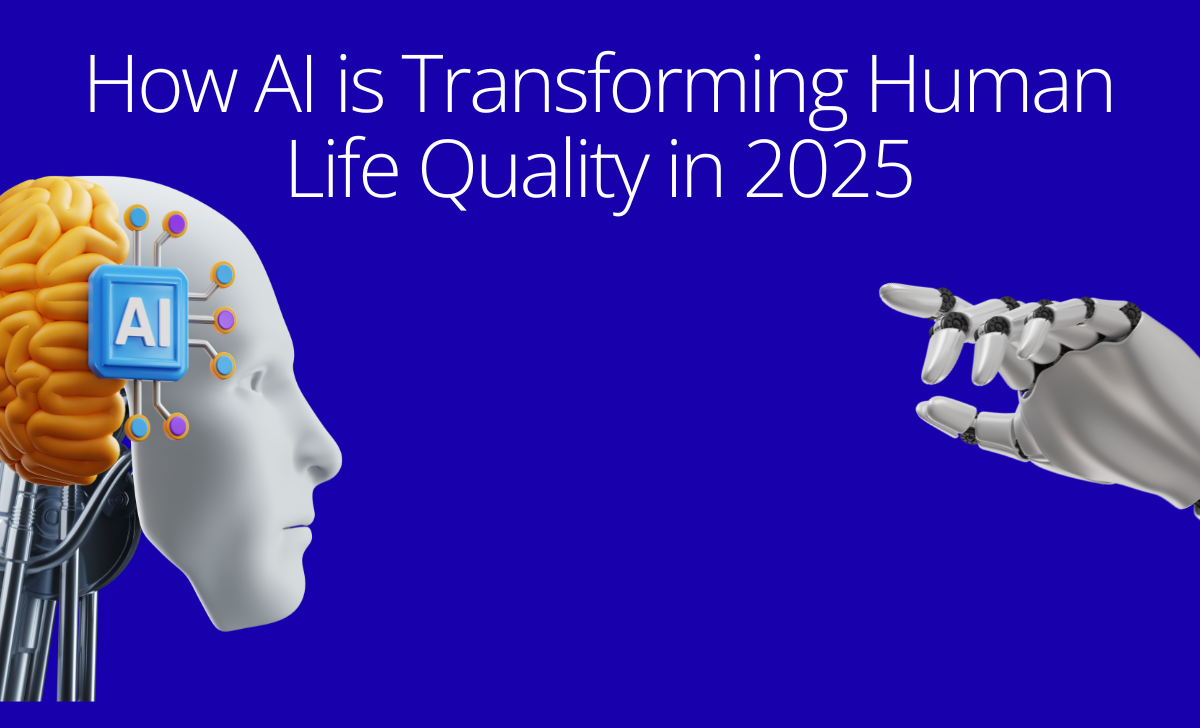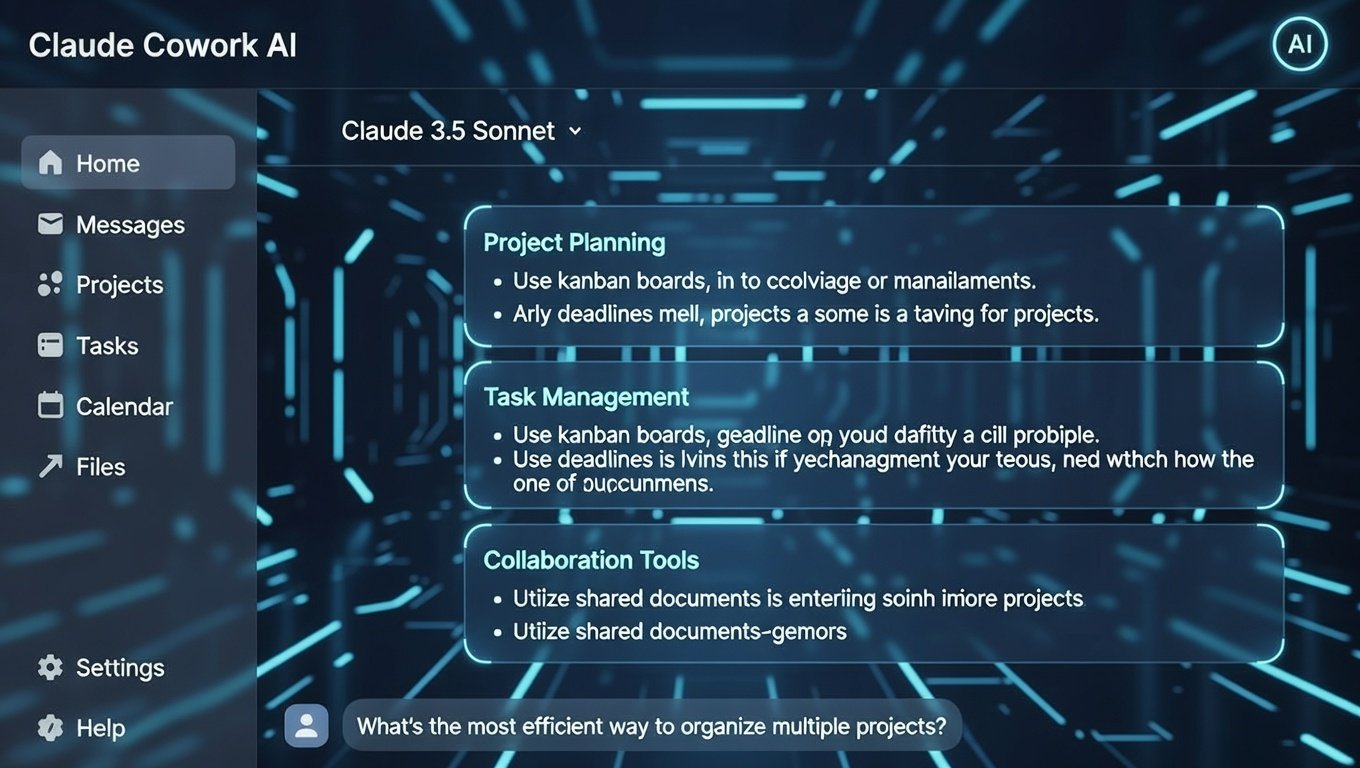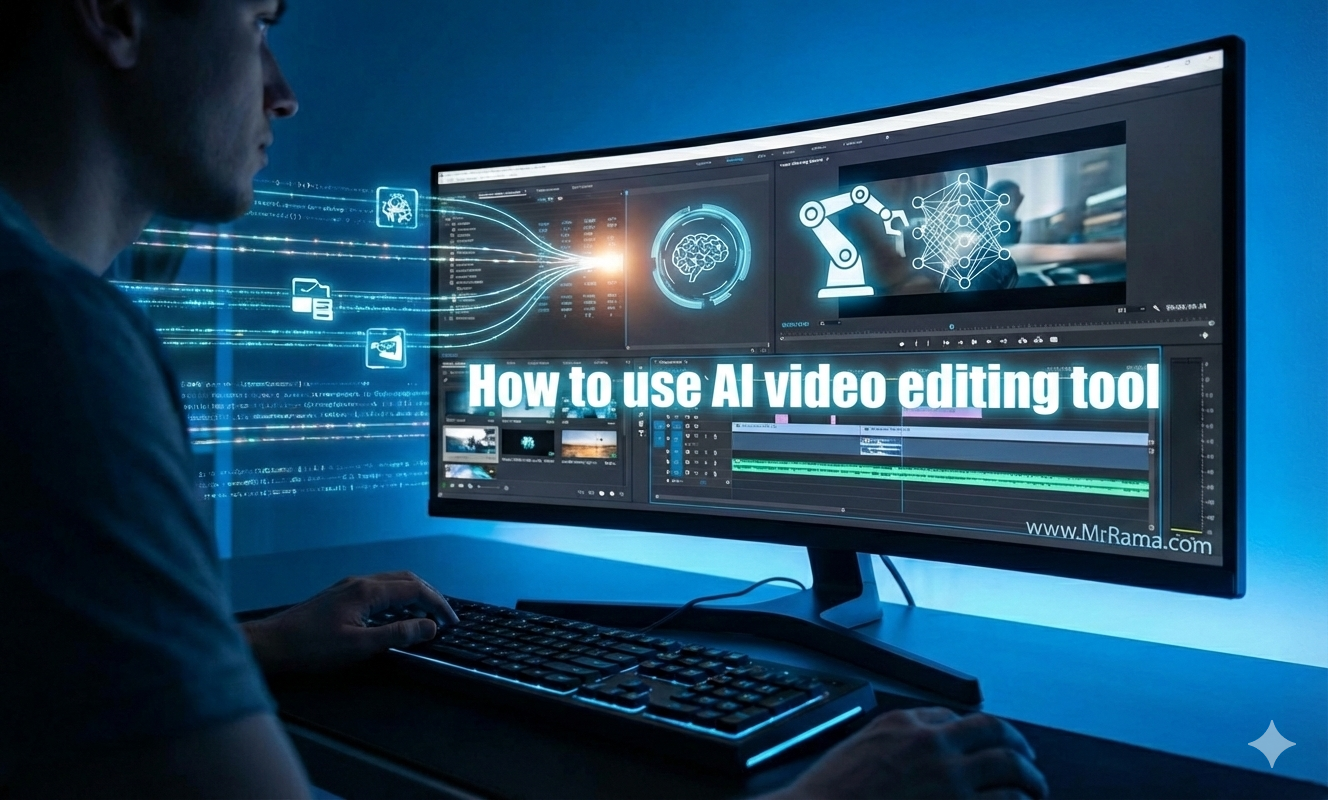The Landscape of AI in 2025
As we progress into 2025, the advancements in artificial intelligence (AI) have become increasingly prevalent, manifesting in various facets of daily life.
This sophisticated technology has seamlessly integrated into numerous industries, fundamentally altering how we interact with the world around us.
AI now plays a vital role in enhancing human life quality by streamlining processes, providing personalized experiences, and improving outcomes in critical sectors such as healthcare, finance, and education.
In healthcare, AI-driven tools enable professionals to diagnose conditions with remarkable accuracy. Machine learning algorithms analyze vast amounts of patient data, leading to early detection of diseases and tailored treatment plans.
For instance, AI systems assist in radiology by highlighting anomalies in medical images more efficiently than traditional methods, thus expediting patient care.
Moreover, virtual health assistants are now commonplace, providing timely medical advice and managing patient follow-ups through intuitive chat interfaces.
The financial sector has also embraced AI technology extensively. Robo-advisors offer personalized investment strategies, allowing individuals to manage their portfolios with minimal human intervention.
Advanced algorithms assess market trends in real-time, optimizing decision-making and mitigating risks. Banks and financial institutions deploy AI to enhance fraud detection systems, which analyze transaction patterns to identify suspicious activities, ultimately protecting consumers.
In education, AI-powered platforms deliver tailored learning experiences based on individual student needs. Intelligent tutoring systems customize content to suit diverse learning styles, promoting academic success and engagement.
Furthermore, AI algorithms facilitate administrative tasks, enabling educators to focus more on interaction with students rather than on paperwork.
Overall, the integration of AI technologies in these sectors demonstrates its transformative potential, reshaping the landscape of daily life and enhancing the quality of human experiences in 2025.
Improved Personal Experiences through AI
As we progress into 2025, artificial intelligence (AI) fundamentally transforms personal experiences, significantly enhancing quality of life for individuals across various domains. One of the most evident benefits lies in increased convenience.
AI-driven technologies streamline daily tasks, allowing individuals to allocate their time more effectively. For example, voice-activated assistants can manage schedules, set reminders, and even control smart home devices, making daily routines more efficient and less burdensome.
Beyond convenience, AI also offers personalized services that cater to users’ unique preferences.
Recommendation systems powered by machine learning algorithms analyze user data to suggest tailored products and services. Whether it is selecting a movie on a streaming platform or curating a virtual shopping experience, these AI tools enable individuals to discover content and items that align with their tastes.
This level of customization not only enhances user satisfaction but also encourages exploration of new interests.
Moreover, AI plays a crucial role in supporting mental health, with a growing range of applications dedicated to improving emotional well-being.
Mental wellness chatbots serve as accessible platforms for individuals seeking guidance or support, providing evidence-based coping strategies and fostering a sense of connection.
AI-driven health monitoring apps can track users’ physical and emotional states, alerting them to potential issues and suggesting interventions, thereby promoting proactive approaches to mental health management.
The advent of these innovative technologies signifies a holistic enhancement of personal experiences, ensuring that individuals enjoy a higher quality of life.
Through the integration of AI into everyday activities, people are not only empowered to make better choices but also achieve a more balanced and fulfilling existence.
The future of personal experiences, heavily influenced by AI, holds the promise of transformation that resonates deeply with individual needs and aspirations.
AI in Healthcare: A Life-Saving Revolution
The integration of artificial intelligence (AI) in healthcare represents a monumental shift in the way medical professionals approach diagnostics, treatment, and patient care.
By leveraging AI technologies, healthcare providers can significantly improve diagnosis accuracy, enabling quicker and more precise identification of illnesses.
For instance, machine learning algorithms can analyze medical imaging data more effectively than traditional methods, leading to earlier detections of conditions such as cancer.
A notable case study involves Google’s DeepMind, which successfully demonstrated that AI could match expert radiologists in identifying breast cancer on mammograms, showcasing the potential to save lives with enhanced accuracy.
Furthermore, AI plays a crucial role in personalizing treatment plans for patients. Unlike the one-size-fits-all approach often adopted in traditional medicine, AI algorithms can assess vast amounts of patient data, including genetics, lifestyle, and previous health conditions.
By doing this, healthcare providers can devise individualized treatment strategies that significantly improve patient outcomes.
For example, precision medicine platforms analyze genetic information to tailor therapies for patients with specific types of cancer, optimizing the efficacy of treatments while minimizing side effects.
AI’s capabilities also extend to predictive analytics within healthcare systems, where it can forecast patient outcomes based on historical data and real-time inputs.
This technology allows for proactive interventions, enhancing patient safety and reducing hospital readmission rates. A prominent instance is the use of AI in telemedicine, where virtual consults are augmented by intelligent systems monitoring various patient metrics remotely.
By alerting healthcare providers to potential issues before they escalate, such innovations exemplify how AI is redefining the patient care spectrum.
Robotic surgery, driven by AI, further exemplifies the technology’s transformative power in healthcare.
Minimally invasive procedures performed by robotic systems lead to refined precision, fewer complications, and faster recovery times for patients, thereby elevating the overall quality of care.
AI in the Workplace: Enhancing Productivity and Innovation
The integration of Artificial Intelligence (AI) technologies into the workplace is fundamentally reshaping the way organizations operate, leading to significant improvements in both productivity and innovation.
By automating mundane and repetitive tasks, AI allows employees to focus on more strategic initiatives, ultimately enhancing their job satisfaction and fostering a more engaged workforce.
Tasks such as data entry, scheduling, and routine reporting can now be handled by AI-driven systems, significantly reducing human error and freeing up valuable time for employees to concentrate on higher-value activities.
AI tools such as collaborative platforms and project management software have transformed the nature of teamwork. With AI algorithms analysing team dynamics and project progress, it becomes easier to allocate resources effectively, track deadlines, and identify bottlenecks in workflows.
These advancements not only optimise workflows but also promote a culture of collaboration and creativity among team members, which is essential for driving innovation.
For instance, tools like Slack and Asana have incorporated AI features that facilitate communication and streamline project reporting, resulting in increased efficiency across various departments.
Moreover, AI’s capacity for advanced data analysis empowers businesses to make data-driven decisions more swiftly and accurately.
By leveraging predictive analytics and real-time insights, organizations can identify trends, gauge performance, and understand customer preferences, leading to enhanced strategic planning.
This analytical capability boosts the organization’s adaptability to market changes, creating a more resilient corporate culture. In this evolving landscape, both employees and employers reap the benefits as the synergy of AI and human talent leads to improved productivity levels, fostering a brighter and more innovative future.
Economic Growth through AI: Opportunities for Individuals
As we venture into the landscape of 2025, the advent of artificial intelligence (AI) is catalyzing significant economic growth, reshaping job markets, and creating myriad opportunities for individuals.
The proliferation of AI technologies is not limited to traditional employment avenues but is expanding into the gig economy, allowing individuals to harness AI capabilities for income generation.
This evolution opens doors to freelance opportunities where skilled professionals can offer AI-related services, such as data analysis, machine learning model development, and AI content creation.
Moreover, the rise of AI-driven platforms is fostering innovative business models that encourage entrepreneurial ventures.
Individuals can capitalize on these technologies by establishing startups that leverage AI for various applications, from e-commerce solutions to personalized digital marketing strategies.
This transformation provides a unique chance for individuals to enter the marketplace, armed with tools that enhance efficiency and optimize customer engagement.
AI has the potential to democratize access to resources and knowledge.
Online platforms that incorporate AI algorithms can provide tailored educational content and training programs, enabling individuals to acquire skills relevant to the changing economy.
As traditional job roles evolve, continuous learning becomes imperative, and AI can facilitate personalized learning paths, making it easier for individuals to adapt and thrive in new roles.
This economic shift is also reflected in the emergence of collaborative AI tools that augment human capabilities in various industries.
Whether it’s automating mundane tasks or providing insights to inform decision-making, individuals can leverage AI to enhance productivity and innovation in their respective fields. These tools not only improve efficiency but also enable individuals to focus on higher-level strategic initiatives, thus creating value within their organizations.
In conclusion, the economic landscape in 2025 will be significantly shaped by AI technologies, presenting numerous opportunities for individuals to pursue freelance work, entrepreneurial endeavors, and continuous learning.
By embracing these changes, individuals can enhance their career prospects and contribute to a thriving economy powered by AI.
Integrating AI in Daily Life: Practical Applications
The integration of artificial intelligence into daily life offers numerous practical applications that significantly enhance overall quality of life.
Home automation systems are among the most accessible implementations of AI technology. These systems incorporate smart devices that allow individuals to control lighting, heating, security, and appliances remotely through smartphones or voice commands.
By utilizing AI algorithms, these systems can learn user preferences and optimize energy consumption, leading to not only increased convenience but also cost savings and improved environmental sustainability.
In addition to home automation, fitness and wellness apps represent another area where AI can greatly contribute to enhancing mental and physical well-being. These applications often provide personalized workout plans, nutrition tracking, and guided meditation sessions tailored to individual needs.
By analyzing user data and patterns, these apps can adjust recommendations to ensure that users achieve their fitness goals more efficiently. Moreover, integration with wearable technology further enhances tracking capabilities, providing real-time feedback that empowers users to maintain a healthier lifestyle.
Productivity tools utilizing AI also play a crucial role in streamlining daily tasks. Applications designed for task management, scheduling, and communication can dramatically improve work efficiency.
AI-driven virtual assistants can help organize schedules, set reminders, and filter emails, thereby reducing the cognitive load on users. Furthermore, AI technologies can analyze productivity patterns, suggesting optimal work periods to maximize focus and minimize distractions.
In summary, the practical applications of AI in everyday routines are vast and varied, encompassing home automation, fitness and wellness, and productivity enhancements.
As individuals embrace these technologies, they can expect to streamline their tasks, improve efficiency, and ultimately enjoy a higher quality of life.
The future of daily living is undoubtedly intertwined with artificial intelligence, offering opportunities for meaningful improvements across various aspects of human experience.
The Ethical Implications of AI Use
The rapid advancement of artificial intelligence (AI) technology has brought forth significant ethical considerations that warrant careful examination.
As AI becomes increasingly integrated into various aspects of everyday life, concerns regarding data privacy, algorithmic bias, and the necessity for responsible usage have emerged.
Understanding these implications is essential to ensure that AI enhances rather than diminishes the quality of human life in 2025 and beyond.
Data privacy is a prominent concern as AI systems often rely on vast amounts of personal information to function effectively.
The collection, storage, and utilization of this data raise questions about consent and user rights. Without stringent regulations in place, users may unknowingly relinquish control over their information, elevating the risk of misuse or exploitation.
Therefore, it is critical for stakeholders—including technology developers, policymakers, and users—to advocate for robust frameworks protecting personal data while fostering innovation in AI.
Another ethical dimension of AI technology is algorithmic bias. When AI systems are designed without consideration of diverse populations, they can perpetuate existing stereotypes and inequalities.
This bias stems from the data used to train AI models, which may reflect historical prejudices. Addressing algorithmic bias is paramount in ensuring that AI benefits all segments of society equitably.
Developers must prioritize inclusivity in their AI training datasets and actively work towards creating algorithms that are fair and impartial.
In light of these challenges, the importance of responsible AI usage cannot be overstated.
Users are encouraged to engage critically with AI technologies, understanding the potential consequences of their interactions. By promoting ethical standards and regulations surrounding AI development, society can balance the pursuit of technological advancement with the imperative to safeguard user rights.
These considerations will play a vital role in shaping a future where AI technologies enhance quality of life without compromising ethical principles.
Learning to Use AI: Skills for the Future
As artificial intelligence continues to permeate numerous sectors, acquiring AI-related skills has become essential for the future workforce.
The rapid pace of technological advancement necessitates that individuals develop a versatile skill set that incorporates the understanding and effective use of AI tools and technologies. Organizations are increasingly seeking professionals who can harness AI to enhance productivity and drive innovation.
Consequently, adapting to this evolving landscape is crucial for remaining competitive in the job market.
Educational institutions and online platforms are rising to meet this demand by offering a plethora of resources tailored for learning about artificial intelligence.
Platforms such as Coursera, edX, and Udacity have curated specialized courses covering various aspects of AI, including machine learning, natural language processing, and data analytics.
These courses not only provide foundational knowledge but also present real-world applications, allowing learners to engage in hands-on projects that reinforce their understanding.
Moreover, organizations are investing in upskilling and reskilling their workforce by providing training programs and workshops focused on AI competencies.
Employees are encouraged to participate in continuous learning initiatives that foster a culture of adaptability and innovation within their organisations.
This commitment to professional development is key to successfully integrating artificial intelligence into their daily operations and workflows.
Furthermore, collaboration with industry experts can enhance the learning experience, offering insights into the latest developments and trends in AI.
Networking opportunities with professionals in the field also contribute to an individual’s growth, allowing them to exchange ideas and perspectives with like-minded peers.
Ultimately, cultivating a mindset of lifelong learning and embracing AI technologies will empower individuals to thrive in the evolving job landscape and capitalize on the opportunities presented by this technological revolution.
Conclusion: The Importance of Embracing AI Technology
As we stand on the brink of a new era defined by artificial intelligence, it is imperative for every individual to embrace the transformative potential that AI technology offers.
The advancements in AI are not merely tools of convenience; they have the capacity to significantly enhance the quality of human life across various domains.
Through improved efficiency in daily tasks and increased accessibility to information, AI can streamline our lives, allowing us to focus on more meaningful pursuits.
Moreover, the economic opportunities driven by AI are profound. From automation of routine jobs to the creation of entirely new markets and employment avenues, AI presents a landscape rich with potential for innovation and growth.
By engaging with AI technologies, individuals can position themselves advantageously within the evolving job market, thus fostering personal advancement and financial stability. The proactive adoption of AI can be a game-changer in elevating one’s career trajectory while also contributing to broader economic progress.
AI also holds the promise of enhancing societal well-being. By facilitating advancements in healthcare, education, and environmental sustainability, AI can address pressing global challenges more effectively.
Each individual who embraces AI technology can play a role in this collective journey toward improving societal conditions.
It is essential to approach AI with a positive mindset, recognising its potential to forge connections, experience enhancements, and advancements in community life.
In sum, it is clear that embracing AI technology can not only enrich individual lives but can also contribute to an evolving society where technology and humanity work hand in hand.
As we look toward the future, let us engage with AI solutions that resonate with our personal and professional aspirations, fostering a more promising and enlightened world for all.




